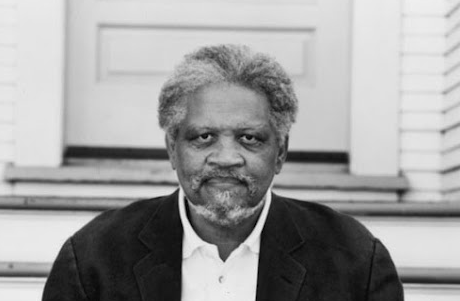
Ishmael Reed thinks I said Ray Rice represents all black men.
I was on Melissa Harris-Perry’s show this past Sunday, and we discussed how Rice’s indefinite suspension from the NFL had been lifted, along with Janay Rice telling her story as the woman whom Ray Rice punched and then dragged from an elevator. Melissa asked me what I thought about the fact that four teams had expressed interest in signing Ray Rice. I told her I was glad they weren’t pretending to care about black women, as NFL Commissioner Roger Goodell had. Even though I got some pushback from another guest about how domestic violence isn’t solely perpetrated by black men (which… duh), I felt it was necessary to talk about the racial dynamics of this story. Janay has done for Ray what black women have done for black male abusers throughout the years: attempt to protect them from a racist and unjust system that eagerly punishes black men for committing no offense, and punishes them more harshly than white folks when they do. Black women have shown up for black men, even when black men are in the wrong (current example: Whoopi Goldberg and Jill Scott going to bat for Bill Cosby).
For me, it’s hard to not think about that legacy and then think about what is happening in Ferguson right now. You have black women on the ground, organizing, protesting, and publicly loving black men — putting their lives on the line — while all of the excuses in the world are being made for Ray Rice, all the second and third chances being offered, and little-to-no concern being shown for Janay Rice (or Marissa Alexander) on the part of black men. We have all the analysis handy to dissect racism, but when we uphold aspects of a violent patriarchy, suddenly our typing fingers and speaking mouths cease working.
That’s what I was getting at on the show. Ishmael Reed, the renowned novelist, essayist, and curmudgeon, thinks I said Ray Rice represents black men everywhere.
Ishmael Reed is still mad about The Color Purple.
What I mean is that Reed is stuck on the idea that discussing the inner lives of black women, which far too often includes abuse at the hands of black men, is aimed at destroying the image of black men. It’s the unwillingness of Reed — and others who think this way — to see black men’s complicity in upholding patriarchy that enacts violence on women’s bodies, and which keeps us from addressing domestic violence within our own communities.
Feminista Jones summed it up perfectly in an article for TIME back in September:
And for Black women, it’s an even bigger problem: Black women are almost three times as likely to experience death as a result of DV/IPV than White women. And while Black women only make up 8% of the population, 22% of homicides that result from DV/IPV happen to Black Women and 29% of all victimized women, making it one of the leading causes of death for Black women ages 15 to 35. Statistically, we experience sexual assault and DV/IPV at disproportionate rates and have the highest rates of intra-racial violence against us than any other group. We are also less likely to report or seek help when we are victimized.
The reasons Black women suffer disproportionately from abuse are complex. Racism and sexism are two of the biggest obstacles that Black women in America face. But because many Black women and men believe racism is a bigger issue than sexism, Black women tend to feel obligated to put racial issues ahead of sex-based issues. For Black women, a strong sense of cultural affinity and loyalty to community and race renders many of us silent, so our stories often go untold. One of the biggest related impediments is our hesitation in trusting the police or the justice system. As Black people, we don’t always feel comfortable surrendering “our own” to the treatment of a racially biased police state and as women, we don’t always feel safe calling police officers who may harm us instead of helping us. And when we do speak out or seek help, we too often experience backlash from members of our communities who believe we are airing out dirty laundry and making ourselves look bad in front of White people.
Contrary to what Reed thinks I said, I know Ray Rice is not representative of all black men. My point then, as it is now, is that this situation reflects an issue that black feminists have been telling us about for years: namely, that racial solidarity seems to be non-existent when it’s black women who are airing their grievances. If you still can’t see that, as Ishmael Reed seems unable to do, you can stand to the side.

Join the Conversation